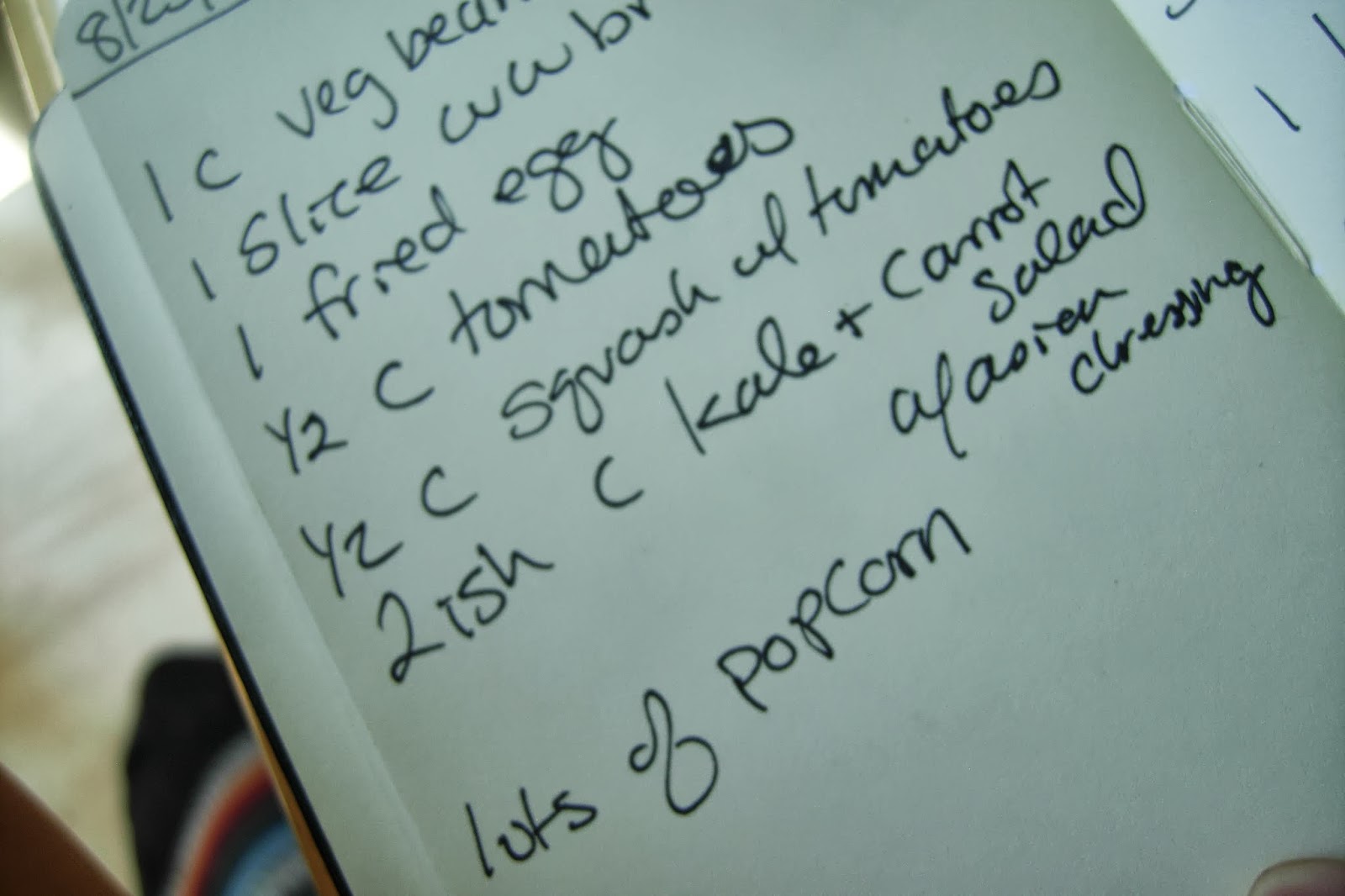I only journaled for two months. By the end, I felt I didn't need it anymore. I was more confidant about how food effected my body, and I was more easily making better choices. My cooking changed, too. I had to really adjust to not putting cheese on everything. I had to give up most sweets and even breads because they contained milk or butter. I had to search out new recipes for cooking veggies or desserts...and went through a lot of terrible experiments! But, eventually, I found some really yummy foods. I found that it might be a little painful to change in the beginning, but there are always a new, delicious combination right around the corner!
Not everyone has food issues like I did. However, I would recommend food journaling to everyone, even if you already have a healthy diet. It is a great way to get in touch with yourself, become aware of what food you consume on a daily basis, and perhaps change your habits for the better. Food journaling also helped me become even more passionate about nutrition and cooking!
How to write a Food Journal:
This is a personal experience. Everyone is going to do it differently. However, I have some guidelines that will help keep your journal organized.
1. Date each entry. This is fairly self-explanatory, but important!
2. Time of day. This is not crucial, but it will give you an idea of how food effects you throughout the day. Did you only have a small breakfast, then ate too much at lunch? When are your best/worst times of the day? What small changes could help you get through the day better?
3. Portions. I never actually weighed or measured my portions, however I made sure to put an average amount, so I knew how much of something I was consuming. For example: 1/2 cup soy milk, 1 cup spaghetti, 1 small brownie...etc.
Optional:
4. Bowel movements. Gross...but good to know. This will show you if you have a healthy digestion, or need more fiber! ha!
5. Weight. I'm not big on this one. I think it is important to be at a healthy weight, but this issue can be very stressful. I think it is better to focus on eating healthy, with appropriate portion sizes, but it can be helpful if this is one of your goals.
6. Your moods and amount of energy during the day. How often do these fluctuate? Does food correspond with these moods? How is your energy? How does this effect what or how you eat?
7. How many of each serving did you get that day: grains, veg, fruit, dairy, meat...
Some other suggestions:
*Don't lie. This was hard for me, but no one else is reading it! Be honest with yourself...it will pay off in the long run.
 |
| One brownie...really? |
*Find a cool little notebook to write in. Make it something special, and it will be more enjoyable to write in everyday.
*Keep an open mind and be open to trying new things. This may surprise you in wonderful ways! :)



No comments:
Post a Comment